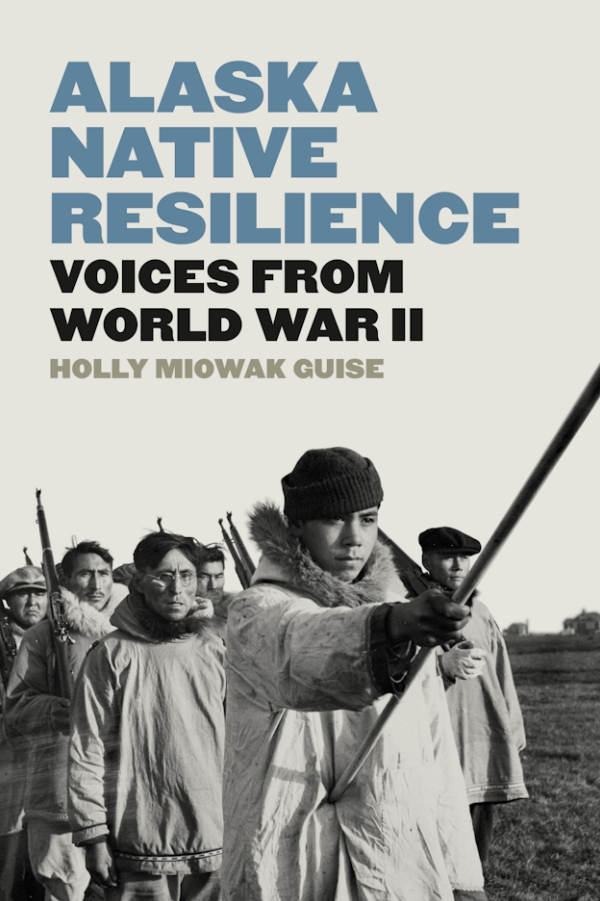"Alaska Native Resilience: Voices from World War II" 7th Annual Digital Knowledge Sharing Workshop Keynote Discussion with Holly Miowak Guise
Benjamin Franklin Hall
427 Chestnut Street
Philadelphia, PA 19106
July 24th, 2024
6:00 - 7:00 p.m. ET
This event is free and open to the public but registration is required.
The video from this talk is available via the APS YouTube.

The video from this talk is available via the APS YouTube.
Join the APS for a keynote discussion featuring Holly Miowak Guise. This keynote is a part of the broader 7th Annual 2024 Digital Knowledge Workshop at the American Philosophical Society.
Alaska Native elders remember wartime invasion, relocation, and land reclamation
The US government justified its World War II occupation of Alaska as a defense against Japan’s invasion of the Aleutian Islands, but it equally served to advance colonial expansion in relation to the geographically and culturally diverse Indigenous communities affected. Offering important Alaska Native experiences of this history, Holly Miowak Guise draws on a wealth of oral histories and interviews with Indigenous elders to explore the multidimensional relationship between Alaska Natives and the US military during the Pacific War.
The forced relocation and internment of Unangax̂ in 1942 proved a harbinger of Indigenous loss and suffering in World War II Alaska. Violence against Native women, assimilation and Jim Crow segregation, and discrimination against Native servicemen followed the colonial blueprint. Yet Alaska Native peoples took steps to enact their sovereignty and restore equilibrium to their lives by resisting violence and disrupting attempts at US control. Their subversive actions altered the colonial structures imposed upon them by maintaining Indigenous spaces and asserting sovereignty over their homelands.
A multifaceted challenge to conventional histories, Alaska Native Resilience shares the experiences of Indigenous peoples from across Alaska to reveal long-overlooked demonstrations of Native opposition to colonialism.
The event will take place on Wednesday, July 24 at 6:00 p.m. ET, and will also be livestreamed. The event is free of charge, but registration is required to attend.
This program is sponsored by The Center for Native American and Indigenous Research (CNAIR), which promotes innovative uses of the Library’s collections to support Indigenous communities' priorities and scholarship.
Holly Miowak Guise (Iñupiaq) is an Assistant Professor of History at the University of New Mexico. Her forthcoming monograph, World War II in Alaska: Native Voices and History focuses on gender, Unangax̂ (Aleut) relocation and internment camps, Native activism/resistance, and Indigenous military service during the war. Her research methods bridge together archives, tribal archives, community-based research, and oral histories with Alaska Native elders and veterans. She is interested in the colonial/Indigenous relationship during war and social history.
In 2008, she began interviewing Alaska Native elders about experiences with racial segregation that pre-dated and continued after the 1945 Alaska Equal Rights Act. In 2013, she pivoted to interviewing Alaska Native elders about their memories on WWII Alaska as servicemen, civilians, and children. She launched a digital humanities website (ww2alaska.com) that features her YouTube channel (World War II Alaska) with oral history content from Native elders, veterans, and Unangax̂ internment survivors. Since 2022, she has served as an editorial board member for the Alaska History Journal. She has also served as the primary scholar in partnership with the Alaska Humanities Forum for the Indigenous Resistance film series which received $50,000 in funding from the National Endowment for the Humanities (2021).
